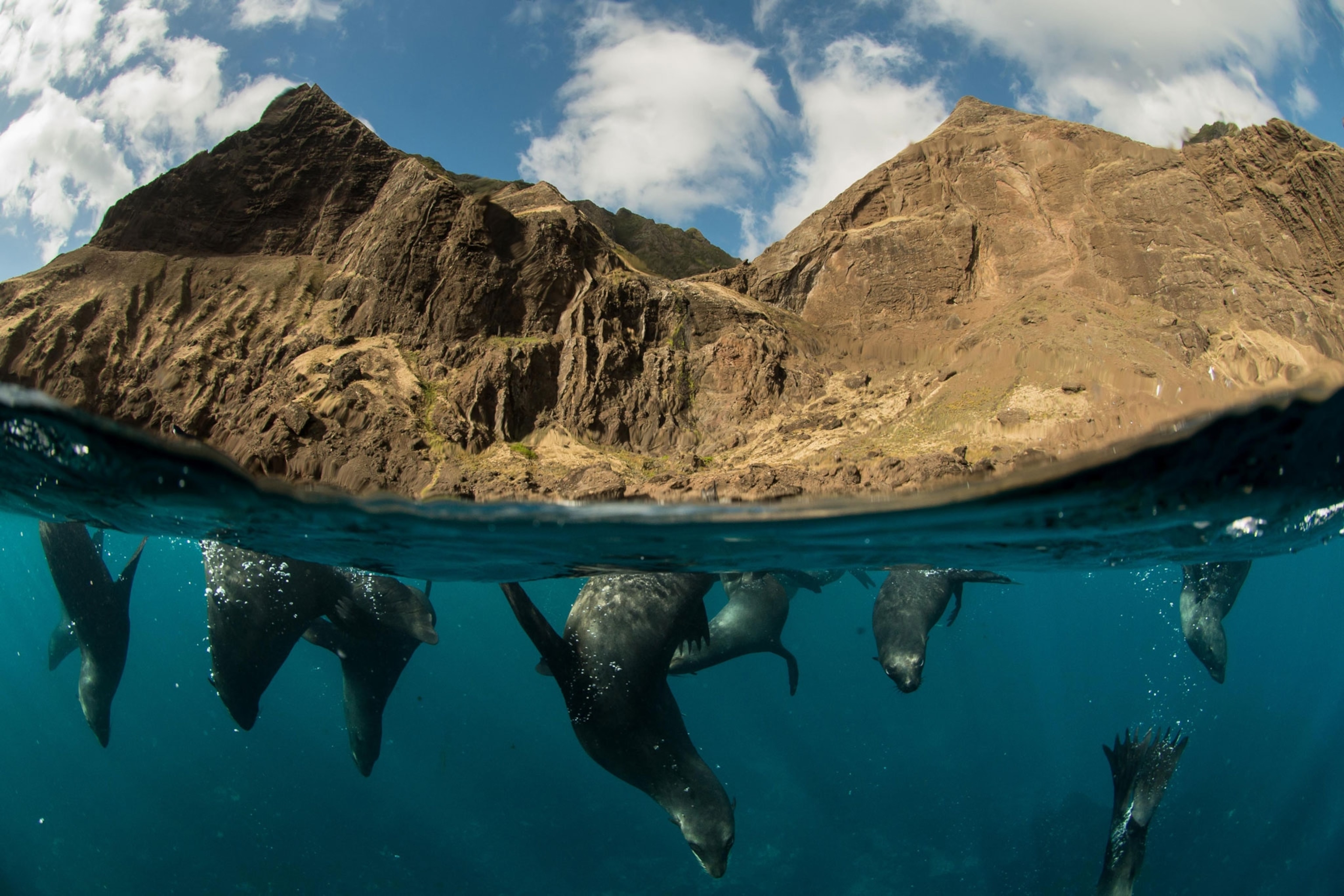MacArthur Foundation awards $100 million to end homelessness in America
The U.S. nonprofit Community Solutions plans to eliminate homelessness in 75 communities within five years. National Geographic’s Pristine Seas was a finalist for the prize.

The MacArthur Foundation has announced that it is awarding $100 million to the U.S. nonprofit Community Solutions to continue its work ending homelessness in communities across the country. The prize is part of the foundation’s 100&Change competition, which funds projects that promise “real and measurable progress” in solving critical global problems.
“We are so enormously grateful,” Rosanne Haggerty, the organization’s president and chief executive officer, said during a virtual event announcing the award on April 7. “In a year that we all have experienced the fragility of life, our interdependence, and the call for racial equity, ending homelessness is truly an idea whose time has come.”
Community Solutions plans to use the $100 million grant to end homelessness in 75 cities and counties across the U.S. in the next five years. The program, which has already ended chronic or veteran homelessness in 15 U.S. communities, uses real-time data to help local leaders understand the shifting dynamics of homelessness and identify potential solutions. It encourages communities to look at homelessness as a problem that can be solved rather than an inevitable reality.
In addition to Community Solutions, National Geographic’s Pristine Seas was among six projects named as finalists in the competition. The program was selected for its work to safeguard the health of the world’s oceans.

The other finalists were the World Mosquito Program, which has developed an innovative approach to protect communities from mosquito-borne disease using bacteria called Wolbachia; Project ECHO, which connects health-care providers in underserved communities with national and regional specialists to share their knowledge and ensure more equitable treatment; the Clinton Health Access Initiative & Murdoch Children’s Research Institute, which is ensuring hospitals around the world are equipped to deliver oxygen to their patients; and Report for America, which supports local journalism by placing young reporters in local newsrooms to report on under-covered issues.
“It’s been a privilege being on the shortlist with all these groups,” said National Geographic Explorer-in-Residence and Pristine Seas founder Enric Sala in an interview before the event. “They are all doing terrific work dealing with issues that are very important for humanity.”
In the months leading up to Wednesday’s announcement, the finalists worked with expert teams from the MacArthur Foundation to strengthen their proposals. For Community Solutions, that has meant developing a framework to help communities design homeless response systems that are racially equitable—and that can help eliminate the disproportionate effect of homelessness on Black and Native American communities. (Read how the booming cost of city living is driving homelessness in America.)
Haggerty said during the event that this moment is particularly critical for addressing homelessness, because the U.S. is reckoning with systemic racism while the COVID-19 pandemic has plunged even more Americans into economic insecurity. As National Geographic reported last spring, people who are homeless are also especially vulnerable to coronavirus infection.
“This is not a problem of broken people, but broken systems,” Haggerty said.

The MacArthur Foundation says it is committed to helping Pristine Seas and the other finalist organizations secure funding for their proposals as well.
Although Pristine Seas didn’t win the $100 million grant, Sala says the organization plans to use the momentum from the competition to expand its efforts to protect a third of the world’s oceans by 2030. In the next decade, Pristine Seas plans to establish another 40 marine protected areas. To ensure that these protections last well into the future, Sala says the project will also deepen its work within local communities to educate and inspire the next generation of ocean advocates.
“What we’ve been able to accomplish goes beyond our wildest dreams when we started, yet it is not sufficient,” Sala says. “This competition really pushed us to think bigger.”
John Palfrey, president of the MacArthur Foundation, said during the event that the decision was not an easy one to make, as all of the projects address critical problems—from the glaring inequities of the global health-care system that COVID-19 has laid bare to the diminishment of local journalism that has left communities susceptible to disinformation. But he said the plan put forth by Community Solutions was “such a bold idea its success will have ripple effects across the country.” (During the pandemic, Minnesota’s food industry shifted gears to feed the city’s most vulnerable.)
Haggerty added that the $100 million prize means Community Solutions will now be able to take on the ideas that she has dreamed about for years but didn’t have the resources to pursue. “That constraint has been lifted now, and it’s so thrilling.”